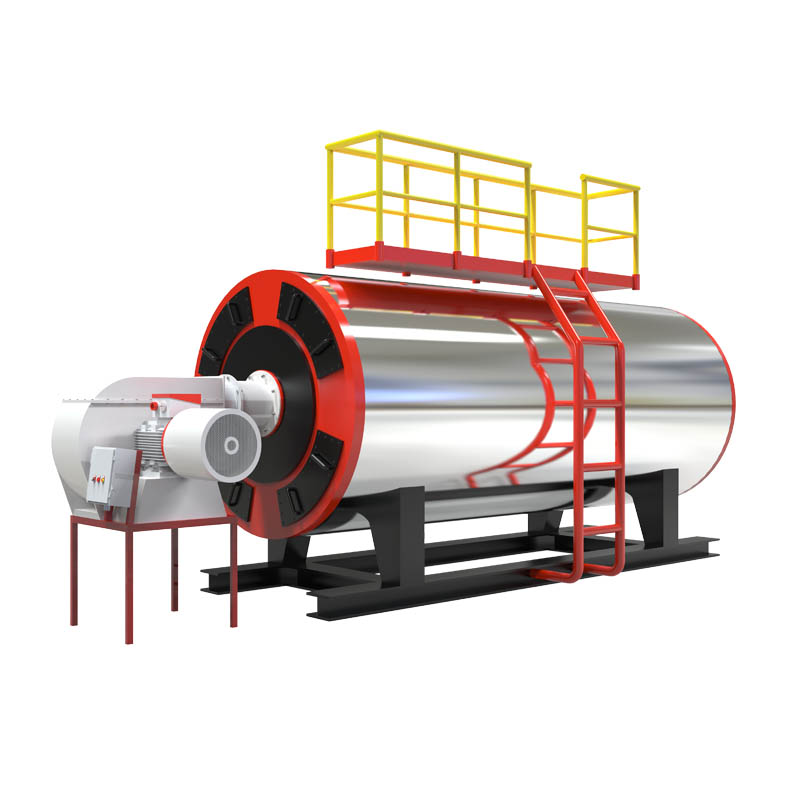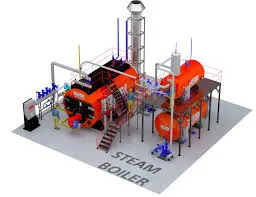
মে . 31, 2025 00:29 Back to list
Steam Boiler Maintenance Guide Pro Tips for Efficiency & Safety
- Boiler fundamentals and why maintenance matters
- Daily/weekly essential maintenance procedures
- Monthly/quarterly advanced inspection techniques
- Annual shutdown protocols
- Maintenance comparison tables by manufacturer
- Custom maintenance program development
- Implementing a proven maintenance strategy

(how to maintain steam boiler)
How to Maintain Steam Boilers for Maximum Operational Lifespan
Understanding the fundamentals of steam boiler operation establishes the foundation for effective maintenance. These systems convert water into steam through controlled combustion, creating immense pressure (typically 15-150 psi) that demands rigorous safety protocols. Neglecting maintenance can decrease efficiency by 20% within two years while increasing failure risk by 45%. Critical components like pressure vessels, safety valves, and heat exchangers require specialized attention according to ASME BPV Code standards. The combustion process itself creates soot accumulation that reduces heat transfer efficiency by 1% for every 0.04-inch layer, making consistent cleaning non-negotiable. Unlike conventional hot water systems, boilers operate under extreme thermal stress – rapid temperature fluctuations cause metal fatigue that accounts for 38% of system failures.
Essential Daily and Weekly Maintenance Routines
Operators should conduct visual inspections during each shift, verifying water levels in gauge glasses fall within the mid-range. Daily blowing down of water columns removes sediment that causes false level readings. Weekly tasks include testing low-water cutoff controls using the quick-drop test method to ensure shutdown within 30 seconds of unsafe conditions. Combustion efficiency checks with flue gas analyzers maintain optimal oxygen levels between 7-10%. Stack temperature should never exceed 350°F; every 40°F increase wastes 1% of fuel. Lubricate rotating components monthly with high-temperature grease rated above 400°F. Steam traps require weekly operational verification through temperature checks or ultrasonic testing - malfunctioning traps waste up to 20% of generated steam.
Monthly and Quarterly Inspection Protocols
Thorough internal inspection every 90 days identifies scaling before heat transfer degradation exceeds 3%. Measure combustion efficiency using Fyrite analyzers to maintain 78-85% efficiency range. Clean fireside surfaces monthly with wire brushes to remove soot deposits exceeding 1/8-inch thickness. Hydraulic test safety valves quarterly at 75% of set pressure to verify operation, then perform full lift tests annually. Calibrate all pressure gauges against master gauges with certification traceable to NIST. Inspect refractory for cracks exceeding 1/8-inch width or missing sections larger than a quarter. For water tube boilers, use borescopes to examine tube interior for pitting deeper than 10% of wall thickness.
Annual Shutdown Maintenance Procedures
Complete system shutdown enables critical maintenance impossible during operation. Hydrostatically test boilers at 1.5 times operating pressure for 30 minutes. Ultrasonic thickness testing maps metal loss in pressure vessels - areas showing over 10% reduction require reinforcement. Chemically clean waterside surfaces to remove scale exceeding 0.015-inches that increases fuel consumption by 2% per 0.004-inch accumulation. Inspect tubes with rotary drills for thin-walled sections below minimum tolerances. Replace gaskets and packings throughout the system regardless of apparent condition. Calibrate burners using combustion analyzers to maintain CO² levels between 11-14%. Megger test motors for insulation resistance above 100MΩ to prevent catastrophic failure.
Boiler vs. Generator Maintenance Comparison
| Maintenance Factor | Fire Tube Boiler | Water Tube Boiler | Steam Generator |
|---|---|---|---|
| Inspection Frequency | Annual | Biannual | Quarterly |
| Average Chemical Cleaning | 18-24 months | 24-36 months | Not required |
| Tube Cleaning Time | 15 hours | 38 hours | 6 hours |
| Combustion Efficiency | 75-82% | 78-85% | 85-92% |
| Operating Lifespan | 15-25 years | 20-30 years | 12-18 years |
| Failure Rate per Year | 7.2% | 4.1% | 9.8% |
Manufacturer-Specific Maintenance Requirements
| Manufacturer | Pressure Test Frequency | Burner Calibration | Valve Certification | Control System Update |
|---|---|---|---|---|
| Cleaver-Brooks | Annual | Semi-annual | ASME/National Board | Every 24 months |
| Miura America | Biannual | Quarterly | ISO 10497 | Real-time OTA |
| Weil-McLain | Annual | Annual | ASME Sec IV | Every 36 months |
| Babcock & Wilcox | Continuous monitoring | Dynamic calibration | NQA-1 standards | Self-diagnostic |
| Bosch Thermotechnology | 13-month intervals | Self-optimizing | DIN 3320 | Remote cloud update |
Building Custom Maintenance Programs
Develop facility-specific programs incorporating three critical elements: operational parameters, failure analysis history, and manufacturer requirements. Water treatment quality dictates cleaning frequency - facilities exceeding 5 grains hardness require quarterly chemical testing. Install IoT monitoring sensors to track stack temperature (optimal range 300-350°F), feedwater conductivity (must remain below 3500 μmhos/cm), and dissolved oxygen levels (target below 7 ppb). For sites with variable demand, implement differential pressure monitoring across heat exchangers to detect fouling early. Establish predictive maintenance using vibration analysis on pumps rotating above 1,800 RPM - replace bearings when measurements exceed 0.25 inches/sec velocity. Document every maintenance intervention in a centralized CMMS with equipment histories dating back 10+ years.
Implementation Strategies for Maintaining Steam Boilers
Successful boiler maintenance programs require cross-functional coordination between operations, maintenance, and engineering departments. Develop detailed lockout-tagout procedures compliant with OSHA 29 CFR 1910.147 - statistically, proper energy isolation prevents 120 fatalities annually in the US alone. Create phased implementation schedules starting with daily checks before advancing to complex combustion tuning. Leverage infrared thermography during annual outages to identify insulation failures showing >15% thermal variance. Maintain inventory for critical spares: safety valves (2 per boiler), gauge glasses (minimum 4 units), and combustion controllers (1 full set). Analyze boiler water chemistry weekly using atomic absorption spectrometers to detect caustic concentration changes exceeding ±100 ppm. Establish formal training programs with ASOPE or NICET certification requirements for all technicians.

(how to maintain steam boiler)
FAQS on how to maintain steam boiler
Q: What are the basic steps to maintain a steam boiler?
A: Regularly check water levels, test pressure relief valves, and clean internal components to prevent scale buildup. Schedule annual professional inspections for optimal performance.
Q: How often should I perform maintenance on a steam boiler?
A: Conduct daily visual checks, weekly pressure tests, and monthly cleaning. Full system inspections by a certified technician should occur annually.
Q: What key differences affect maintenance for steam boilers vs steam generators?
A: Steam boilers require frequent water treatment and sediment removal, while steam generators need less maintenance due to compact designs but demand precise water quality control.
Q: Why is water treatment critical for steam boiler maintenance?
A: Proper treatment prevents corrosion, scale formation, and sludge buildup. Untreated water can damage components and reduce efficiency.
Q: What are common mistakes to avoid when maintaining a steam boiler?
A: Neglecting water level checks, skipping blowdown procedures, and ignoring unusual noises or pressure fluctuations can lead to breakdowns or safety hazards.
-
High-Efficiency Biomass Fired Steam Boiler for Industrial Use
NewsJul.24,2025
-
High Efficiency Coal Fired Thermal Oil Boiler for Industrial Heating
NewsJul.23,2025
-
High-Efficiency Gas Fired Thermal Oil Boiler for Industrial Heating
NewsJul.22,2025
-
High-Efficiency Commercial Steam Boilers for Sale | Oil & Gas
NewsJul.22,2025
-
Reliable Biomass Thermal Oil Boiler Manufacturers
NewsJul.21,2025
-
Steam Boiler System Diagram & Schematic Efficient Heating Solutions for Industry
NewsJul.08,2025
Related PRODUCTS






















